Workshops
The Bachelor of Arts (Fine Art) is moving to a two-stage enrolment process in 2018. In stage one, you will enrol online in your courses for semesters one and two 2018. In stage two, you will select your semester one classes for Fine Art Studio and Workshop classes and semester one and two classes for ART: History+Theory+Cultures in 2018.
This page will assist you with stage two of the enrolment process. Here you will find a list of potential semester one Workshop classes. (Note: There is a separate page for Fine Art Studio classes and a separate page for ART: History+Theory+Cultures classes.) You will only take one Workshop class in semester one, but you need to list three (3) preferences. These workshops will be for both second and third year students and will be offered under the following course codes:
Workshop 3 VART 3651 (2nd year students)
Workshop 5 VART 3653 (3rd year students)
Read the list below carefully and select three Workshop classes you would be happy to enrol in for semester one. Remember these Workshop classes are 12 credit point courses and will require 3 contact hours per week.
In February 2018, we will post a link to a google form on this page so that you can nominate your preferred Workshop classes. The form will have three (3) drop-down menus with the following classes listed. You will need to nominate your first, second and third Workshop class preferences.
IMPORTANT – You must not repeat any class in your preference lists. Every effort will be made to place you in your first preference classes.
Course Information
Offering Studio
dffgf
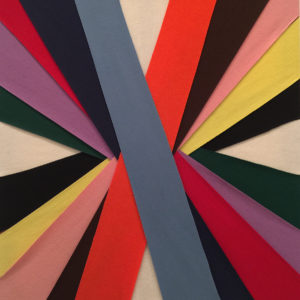
Image Credit: Anne-Marie May, Untitled (Construction of coloured rays), 1993, Coloured felt, NGV Collection. Photograph Peter Ellis
Advanced Painting - WORKSHOP FULL
In this workshop, you will develop an understanding of the expanded field of painting to encompass the painting as object, on and off the wall. You will experience an expansive view of painting as installation that invites exploration into site-specific work, time based practice, the ephemeral, material process and the use of traditional and experimental media. The focus for the workshop is on key developments in historic and contemporary painting as object, the relationship to space, the environment and the viewer. You will experience a series of propositions and projects that guide you towards an individual, sustainable practice that complements your fine art studio. You will experience trial installations, gallery visits, individual and group tutorials.
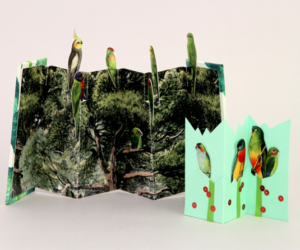
Image Credit: Courtesy of Jazmina Cininas 2017
Book as Art Object
In this course, you will explore the possibilities offered by the artist’s book for the presentation of visual information and ideas. A broad range of book binding methods will be introduced and applied in studio workshops. The methods of bookbinding covered in this course incorporate both adhesive and non-adhesive book binding methods, as well as binding methods. You will discuss and apply bookbinding methods appropriate to both print and photo media content to extend your art practice.
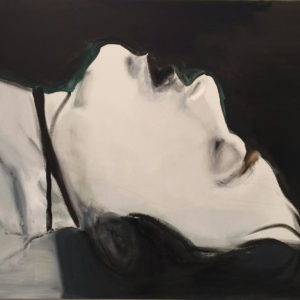
Image Credit: Marlene Dumas, Stern 2004, oil paint on canvas, TATE Modern, London, UK. Photograph Peter Ellis.
Contemporary Figuration - WORKSHOP FULL
In this studio based workshop you will investigate a diverse range of conceptual and technical aspects of figuration. Through a series of projects you will experience the human image and the broader framework of the real, the landscape, the natural world and the body. Using strategies such as observation, models, reproductions and film as source material you will develop an individual approach to contemporary figuration. You will investigate ideas of narrative, distortion, movement, emptiness, and trace as form and content, in a way that explores the unique place of figuration in contemporary art. This workshop will enable you to explore the relationship between painting, drawing, photography, social media and film. Research and experimentation is a core strategy of the workshop leading to a group of individual resolved artworks. Visual lectures, individual and group tutorials, field trips, and demonstrations complement this workshop.
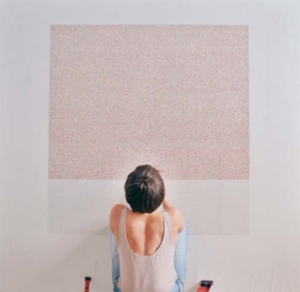
Image Credit: Tessa Lancashire, siddhartha, 2016, coloured pencil on coated poly-cotton cloth, 200 x 200cm (studio view).
Drawing Disegno Discourse - WORKSHOP FULL
In this course, you will develop essential skills of envisioning, expressing and transforming your ideas through drawing. Based in the concept of disegno as a knowledge generating activity that integrates perception, action and cognition you will engage drawing as a primary means of working with ideas and forms, processes, gestures and experiences. This course provides strategies and methods for you to transform your thoughts and perceptions into autonomous artworks through drawing based practices. Objectives are to frame Drawing as a stand-alone practice that can be further articulated through individual practice. You will gain skills in iterative strategies that generate artistic departure points for complex and resolved art works. You will examine how knowledge and making are linked through ways of seeing and thinking and investigate pictorial languages and conceptual approaches to communication through the making of creative works in your studio production.
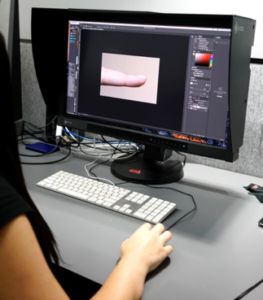
Image Credit: Courtesy of Gabe Tongue 2017
Electronic Imaging
This course introduces you to contemporary digital imaging technologies with an emphasis on the significance and position of the electronic image in art practice. You will explore the relationship between analogue practices and electronic imaging through projects that encourage critical evaluation of methods using conceptual and technical foundations in a fine art context.
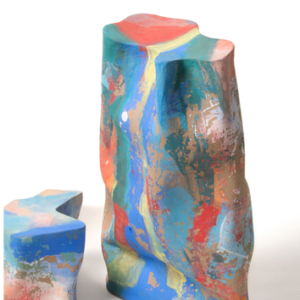
Image Credit: Magdalena Dmowska, Intensity is silent (fragment), 2017, clay
From the Surface Up
This course is designed to develop your individual studio work through exploring the ceramic object. In particular you will investigate surface as integral component in creating form. You will engage in a series of projects and material investigations to develop new ceramic works. You will explore how to develop the clay surface through a range of techniques: in clay, on clay, on glaze. Main areas of investigation will be: slip glaze, texture, painting, decals, enamel, lustre, all on the ceramic surface. You will experiment and play these techniques and processes to explore and articulate personal concepts of ceramic making. At the completion of this course you will have produced a body of creative works as well as sample base of ceramic material and technical investigations.
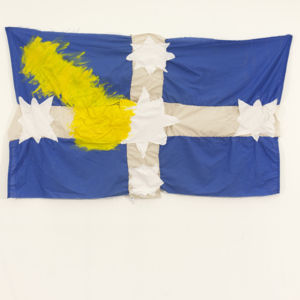
Image Credit: Tim Greaves, FLAG<REMIX, 2014 , 70 x 150cm
Hybrid 2D - WORKSHOP FULL
In this course you will develop skills in combining picture making, visual research and composite materials as a way of generating new knowledge and ideas for your studio practice. The two-dimensional ground is a place to play and experiment, to bring new ideas together, to translate and recombine public and personal meanings. This course provides a range of individual research strategies formed around cycles of making and principles of assemblage, collage, montage, unmaking and reworking, reflecting on ideas of painting-ness or the painterliness of the object. Objectives are to extend your skills to transform traditional mediums, to complement your emerging studio practice through individually realised projects and to develop awareness and understanding of how broad social and cultural perspectives can be reflected in contemporary art practice.
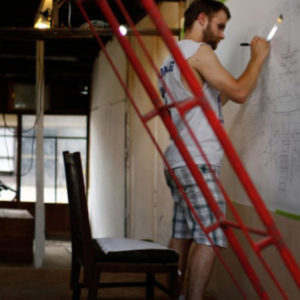
IMAGE CREDIT: STUDENT on site. PHOTOGRAPHY Tammy Hulbert
Internship
In this course, you will participate in an internship or artist in residence program in an arts or cultural organisation, company, festival, gallery, museum or studio, through dual negotiation with the industry and the School of Art. You will be expected to work as directed by the host organisation, to address and solve real issues in an arts industry workplace environment.
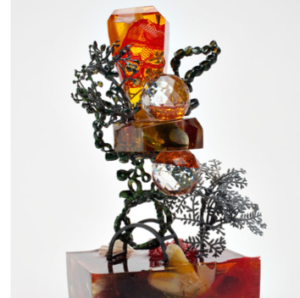
Image Credit: Nina Oikawa, Fossil Amber, 2009, sterling silver, ruby, peridot, synthetic sapphire, cubic zirconia, found material
Jewellery Attachments - WORKSHOP FULL
In this course you will learn how the notion of attachment can be applied in jewellery making to incorporate non-metallic materials. You will examine how the gemstone, both semi-precious and artificial, can be invigorated and repositioned in a contemporary art jewellery context. You will first investigate basic methods of stone setting and you will then extend this knowledge by experimenting with different ways of attaching non-metal to metal. You will develop your own personal approaches to the inclusion of other materials in jewellery objects and you will look at how the found object can extend the meaning of the work. You will rethink historical and cultural perceptions of jewellery value through the making of new jewellery works.
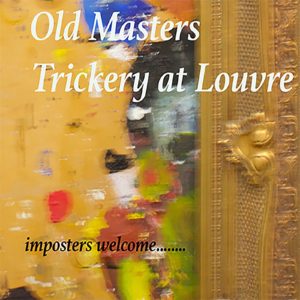
Phil Edwards, Old Masters Trickery at the Louvre - Imposters Welcome, 201, Colour, Photocopy Print, Image courtesy of the artist, Copyright: Phil Edwards
Literature, Text and Visual Arts - WORKSHOP FULL
This course investigates and explores the relationship between text and visual art, with specific reference to narrative literature. The relationship between the visual arts and literature is historically intimate, complex and ongoing. Early historical examples of illustrated books and public imagery of text will be referenced in this workshop as examples of how these arts interact. Through a series of initial short projects you will explore aspects of poetry, novels, scientific writing or advertising in combination with the practices of drawing, painting and other media including digital media associated with a contemporary studio practice. It is envisaged that after some brief introductory group exercises, lectures and excursions to the State Library you will, develop a personal major resolved project that explores text and narrative in a visual art context suitable for expanding your individual studio interests. You will experience collaborative practices and a wide range of media including traditional the experimental. There will be consultative flexibility in the organization of these projects. Outcomes of the course will include a class zine for publication as well as individual artworks such as drawings, posters, paintings or digital media suitable for exhibition. This workshop is complemented by individual and group tutorials, visual lectures excursions and discussions.
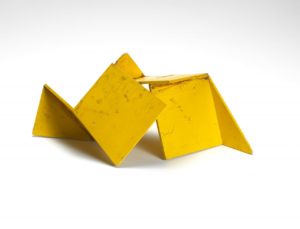
Image credit: Ron Robertson-Swann, 1978, Maquette for Vault, synthetic polymer paint on balsa wood, NGV Collection.
Model & Site
This course brings together the technical skills required for model making for site-specific work. The technical skills you will develop in this course relate to a range of sculptural materials that can be used in model making including sheet materials such as card, wood, metal and foam core, shaping and modeling materials such as polymer clay and materials that can be cast such as plaster, concrete and resin. Models (or maquettes) are traditionally used in sculpture to aid in the visualization of a final work but may also be shown or collected as artworks in their own right. Artists use them to develop ideas for exhibition and as an aid in exhibition applications. They are also often used in the development of public projects where an artist may receive a fee to produce a scale model during selection for a large-scale project. In this workshop, you will consider the model in the broadest sense and work with a site of your choice. You will develop a series of experimental models to scale and will be expected to research your site (gallery or public environment) thoroughly through site audits, collecting samples and research. You will also develop skills in drawing, documenting your models and presenting your research.
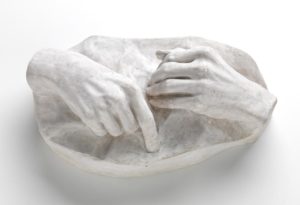
Image credit: Max Klinger, 1920, Cast of artist’s hands, plaster, NGV Collection.
Modelling & Casting
In this workshop, you will learn the techniques involved in modeling plastic sculptural materials such as clay, plasticine and wax. Alongside these skills, you will learn the fundamentals of mold making as a simple means of reproducing original work and found objects using plaster piece molds and flexible molds. You will also learn how to apply these skills to cast directly off the body and other larger objects in the constructed and natural environment in situ. Modeling and casting has a long history both in art and design and has many industrial applications. It facilitates the production of one-off original works and identical multiples. You will develop skills in this workshop that will enable you to produce editions of cast objects. This course will consist of demonstrations followed by individual instruction for each student. You will be asked to respond to a series of guided projects which will both help you to develop sculptural skills as well as make work that is relevant to your own interests.
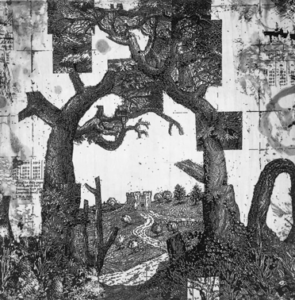
Image Credit: Courtesy of Rob Dott 2017
Photographic Etching - WORKSHOP FULL
In this course, you will further develop your understanding of analogue and digital technologies focusing on intaglio etching, with an emphasis on photographic imagery and processes. Lectures and workshops will provide a mixture of theory and technical skills enabling you to produce works and reflect on the role of traditional and electronic print media in contemporary art. This will help you to expand the aesthetic and conceptual possibilities of your art practice.
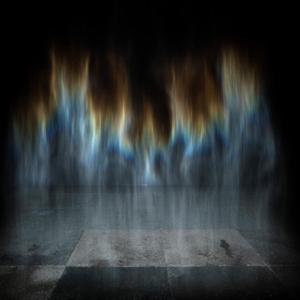
Image Credit: Olafur Eliasson, Beauty, 1993 San Francisco Museum of Modern Art, 2007 Photo: Ian Reeves / Courtesy of San Francisco Museum of Modern Art
Projection, Light and Optics - WORKSHOP FULL
In this course you will explore the possibilities of light, lighting and projection, experimenting with old and new projection technologies such as the Camera Obscura, Camera Lucida, overhead projection, contemporary digital projection and film/video lighting kits both as a developmental tool for making art and a mode of display.
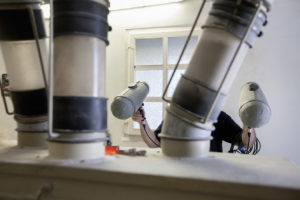
Image Credit: Sound Recordist at Work, Abruzzo, Italy, 2017. Photography: Daniela d’Arielli.
Soundtrack: Sound for space, surface, object and moving image
In this course you will explore techniques and ideas of sound as an accompaniment to other media and extension of your studio practice. You will analyse and experiment with sound in relation to different mediums and identify how conversations across media can bring new meanings to an artwork. You will consider how mediums such as installation, performance, visual media (painting, photography, drawing, print), objects, games, video and animation may be expanded to incorporate sound. You will have the opportunity to demonstrate your understanding of audio and audiovisual principles at both theoretical and practical levels.
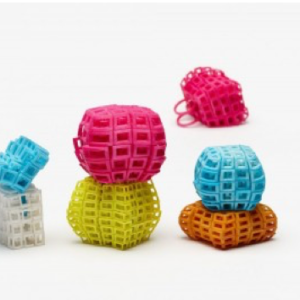
Image Credit: Bin Dixon Ward, Small City rings and stands, 2013, SLS nylon, ink
3D Printed Objects- WORKSHOP FULL
In this course you will explore and experience a range of materials and processes using digital manufacturing techniques and CAD modelling software to build jewellery and objects. You will explore conceptual, perceptual, formal and aesthetic concerns in the rapid prototyping of jewellery and objects and reflect on these in relation to your own practice. Digital manufacturing processes covered will include laser cutting, object printing, and thermojet wax printing. CAD modelling will focus on learning basic to advanced rhino software, introduction to parametric modelling and the use of Magics RP software. You will develop strategies for the integration of digital manufactured objects into the building of 3 dimensional forms.
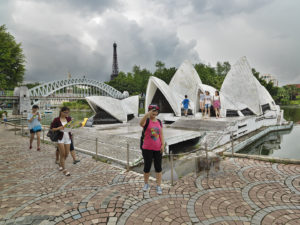
Image Credit: Shane Hulbert, Window of the world, 2014.
The Photographic Fine Print - CANCELLED
In this course you will explore the photographic fine print, its traditions and subsequent practice in the age of digital reproduction. Sophisticated imaging techniques are investigated to expand upon the tradition of the print. You will explore photographic and/or printmaking histories in ways that inform a contemporary digital print imaging practice and employ advanced digital skills and problem solving strategies to make prints of the finest quality.
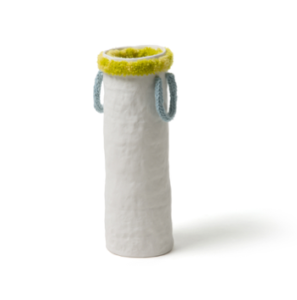
Image Credit: Bonnie Ke, Sewing with Clay, 2017, porcelain and wool
Working with Porcelain - WORKSHOP FULL
In this course, you will create ceramic objects where you will work with and explore the unique qualities of porcelain. The fineness and tactility of this material allows for the production of smaller scale ceramics. You will engage in a series of projects and technical explorations that will generate a personalised vocabulary of porcelain textures and forms. You will begin with an intensive project that will promote you to be experimental and explorative with this material. You will then engage with a larger project (or series?) where you will be able to synthesize these discoveries into a body of completed ceramic works.